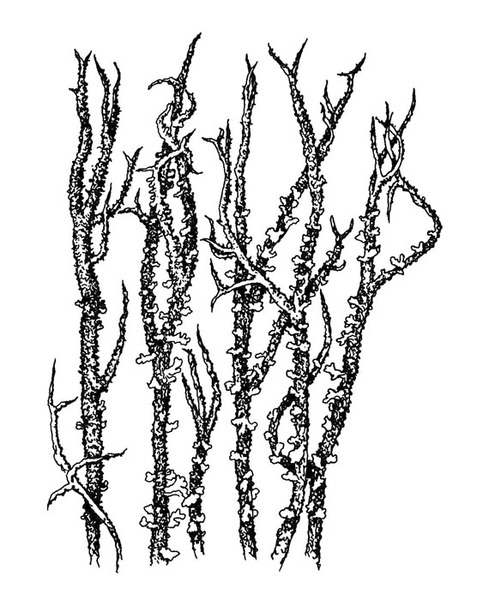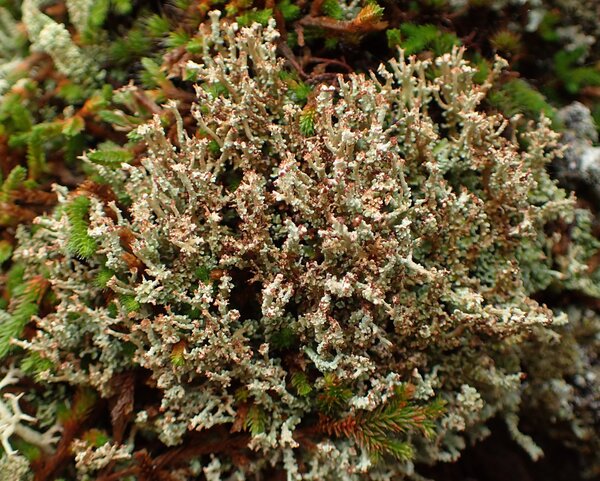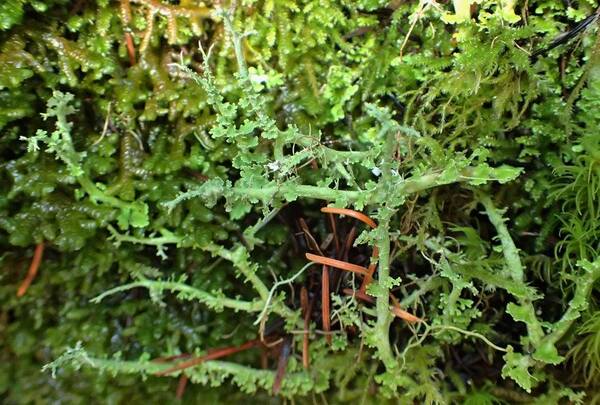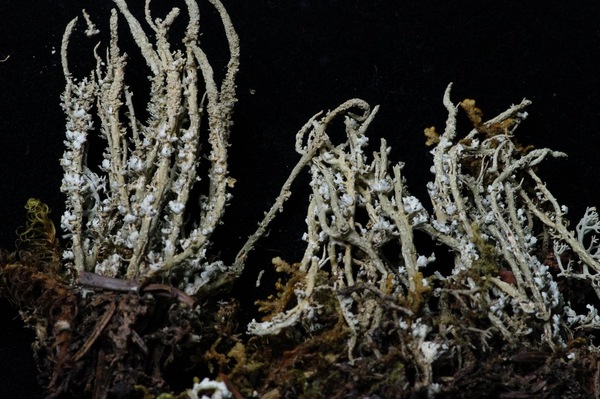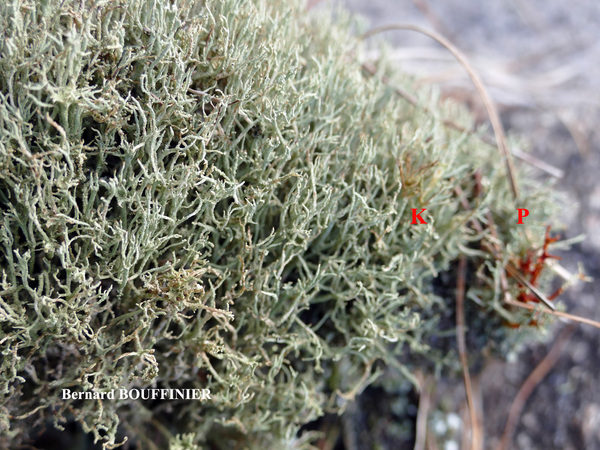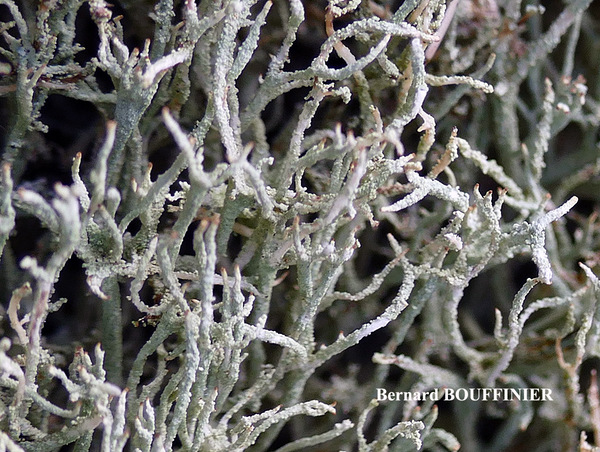Cladonia scabriuscula (Delise) Nyl.
Comp. Rend. Herbd. Séan. Acad. Sci., 83: 88, 1876. Basionym: Cenomyce scabriuscula Delise in Duby - Bot. Gall.: 623, 1830.
Synonyms: Cladonia furcata var. recurva A.L. Sm.; Cladonia furcata var. scabriuscula (Delise) Coëm.; Cladonia surrecta (Flörke) Sandst.
Distribution: N - Frl, TAA, Piem (Isocrono & al. 2004). C - Tosc (Benesperi 2001).
Description: Primary thallus squamulose, usually evident only in young specimens, the squamules middle-sized, 1-3(-4) mm long and broad, crenate, adnate and often forming rosettes with raised margins, glaucescent above, white beneath. Podetia slender, dichotomously branched, hollow inside, with mostly open axils, 2-5(-10) cm tall, 2-5 mm thick, forming irregular tufts, with pointed apices, pale greenish grey, smoothly corticate but towards tips scabroous due to granules, microsquamules and disintegrating cortex, sometimes slightly and sparsely sorediate at tips. Apothecia very rare, dark brown, convex, small, crowded on the terminal branchlets. Asci 8-spored, clavate, thickened at apex, with a K/I+ blue tholus and a K/I+ strongly blue outer gelatinous sheath, Cladonia-type. Ascospores 1-celled, hyaline, ellipsoid. Pycnidia dark, semi-immersed, on the tips of podetia, with a colourless jelly. Conidia hyaline, curved. Photobiont chlorococcoid. Spot tests: K- or K+ yellowish slowly turning brown, C-, KC-, P+ red, UV-. Chemistry: fumarprotocetraric acid complex, rarely with traces of atranorin.Note: a mainly temperate, widespread but rare lichen found on soil and amongst mosses in humid-sheltered situations, such as open woodlands.
Growth form: Fruticose
Substrata: soil, terricolous mosses, and plant debris
Photobiont: green algae other than Trentepohlia
Reproductive strategy: mainly asexual, by isidia, or isidia-like structures (e.g. schizidia)
Most common in areas with a humid-warm climate (e.g. most of Tyrrenian Italy)
Commonnes-rarity: (info)
Alpine belt: absent
Subalpine belt: absent
Oromediterranean belt: absent
Montane belt: extremely rare
Submediterranean belt: extremely rare
Padanian area: absent
Humid submediterranean belt: very rare
Humid mediterranean belt: extremely rare
Dry mediterranean belt: absent
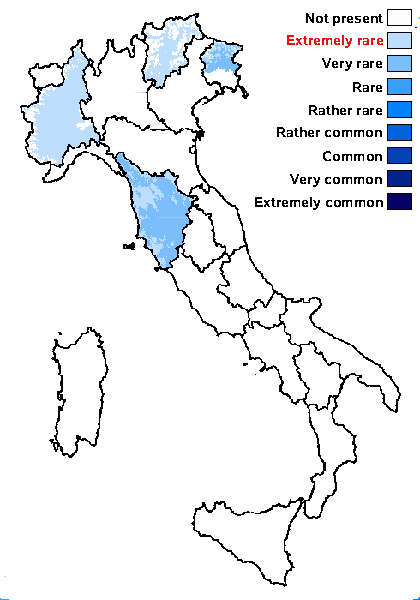
Predictive model
Herbarium samples
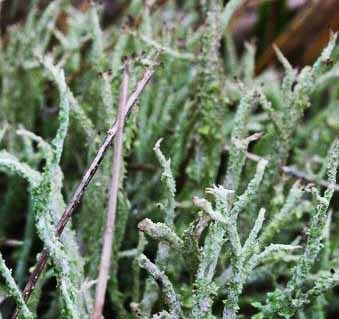
Saxifraga-Willem van Kruijsbergen – Source: http://www.freenatureimages.eu/plants/Lichenes,%20Korstmossen,%20Lichens/Cladonia%20borealis,%20Boreal%20cup%20lichen/
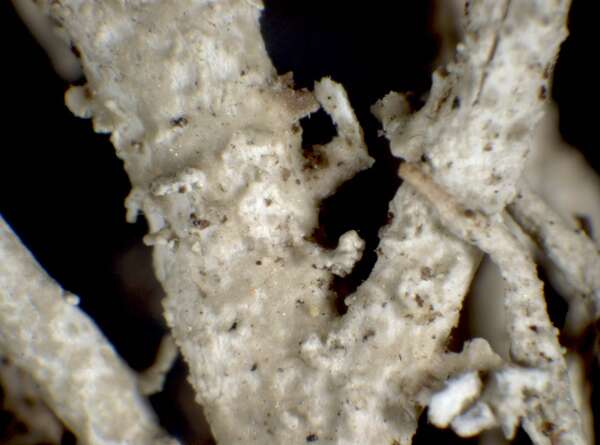

P.L. Nimis; Owner: Department of Life Sciences, University of Trieste
Herbarium: TSB (12946)
2001/12/04
detail of cortex
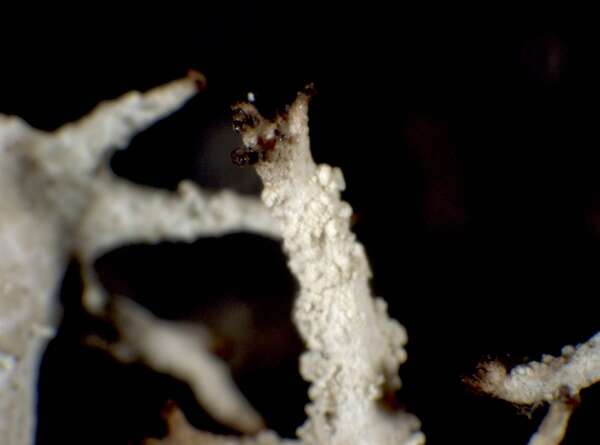

P.L. Nimis; Owner: Department of Life Sciences, University of Trieste
Herbarium: TSB (12946)
2001/12/04
tip of branch with soredia
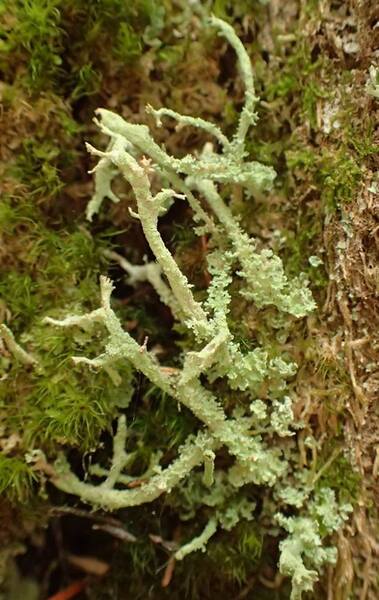

Curtis Randall Björk, - CC BY-SA 4.0
Interior British Columbia, Canada, first western range of the Rocky Mountains over the Robson Valley, British Columbia, Canada
06.2018
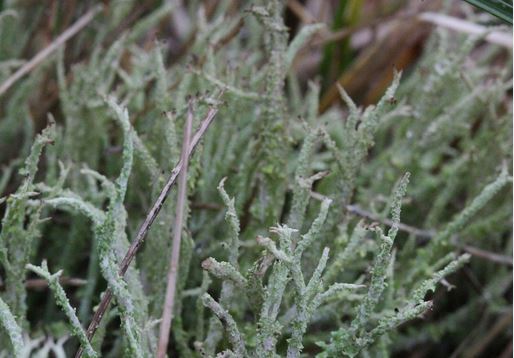
Saxifraga-Willem van Kruijsbergen – Source: http://www.freenatureimages.eu/plants/Lichenes,%20Korstmossen,%20Lichens/Cladonia%20borealis,%20Boreal%20cup%20lichen/
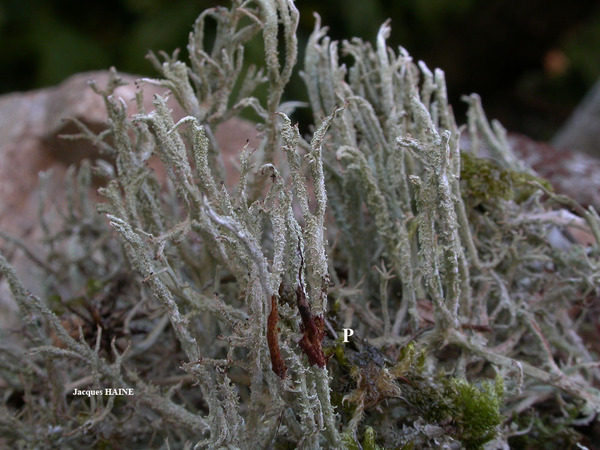
Jacques Haine - Source: http://www.lichensmaritimes.org/index.php?task=fiche&lichen=489&lang=en
France, Ardennes
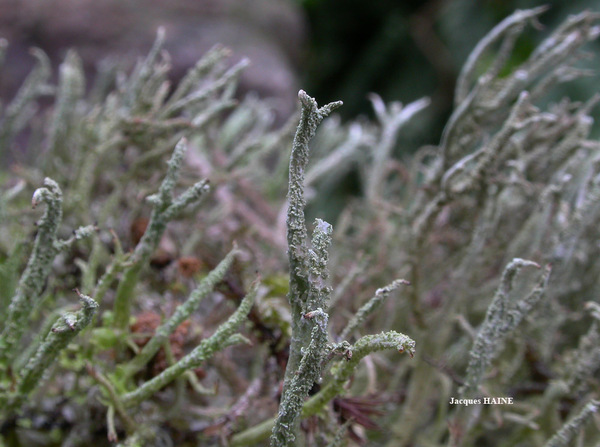
Jacques Haine - Source: http://www.lichensmaritimes.org/index.php?task=fiche&lichen=489&lang=en
France, Ardennes
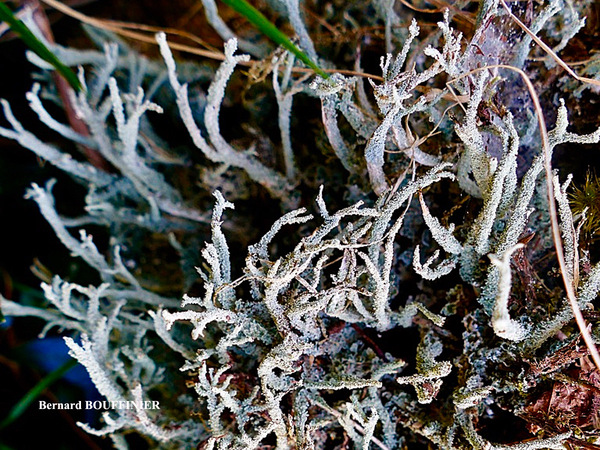
Bernard Bouffinier - Source: http://www.lichensmaritimes.org/index.php?task=fiche&lichen=489&lang=en
France, Botmeur
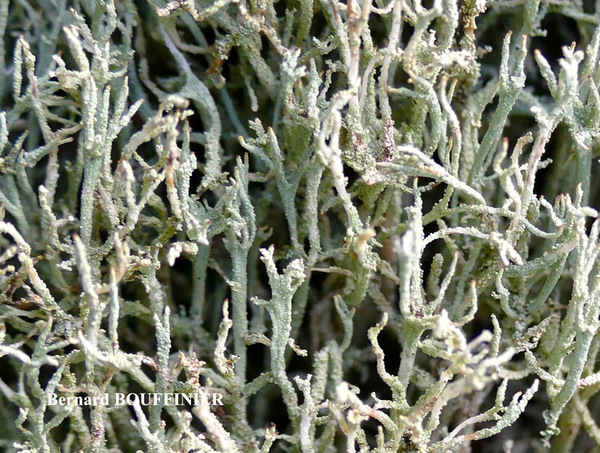
Bernard Bouffinier - Source: http://www.lichensmaritimes.org/index.php?task=fiche&lichen=489&lang=en
France, Saint-Cadou
Growth form: Fruticose
Substrata: soil, terricolous mosses, and plant debris
Photobiont: green algae other than Trentepohlia
Reproductive strategy: mainly asexual, by isidia, or isidia-like structures (e.g. schizidia)
Most common in areas with a humid-warm climate (e.g. most of Tyrrenian Italy)
Commonnes-rarity: (info)
Alpine belt: absent
Subalpine belt: absent
Oromediterranean belt: absent
Montane belt: extremely rare
Submediterranean belt: extremely rare
Padanian area: absent
Humid submediterranean belt: very rare
Humid mediterranean belt: extremely rare
Dry mediterranean belt: absent

Predictive model
| Herbarium samples |

Saxifraga-Willem van Kruijsbergen – Source: http://www.freenatureimages.eu/plants/Lichenes,%20Korstmossen,%20Lichens/Cladonia%20borealis,%20Boreal%20cup%20lichen/


P.L. Nimis; Owner: Department of Life Sciences, University of Trieste
Herbarium: TSB (12946)
2001/12/04
detail of cortex


P.L. Nimis; Owner: Department of Life Sciences, University of Trieste
Herbarium: TSB (12946)
2001/12/04
tip of branch with soredia


Curtis Randall Björk, - CC BY-SA 4.0
Interior British Columbia, Canada, first western range of the Rocky Mountains over the Robson Valley, British Columbia, Canada
06.2018

Saxifraga-Willem van Kruijsbergen – Source: http://www.freenatureimages.eu/plants/Lichenes,%20Korstmossen,%20Lichens/Cladonia%20borealis,%20Boreal%20cup%20lichen/

Jacques Haine - Source: http://www.lichensmaritimes.org/index.php?task=fiche&lichen=489&lang=en
France, Ardennes

Jacques Haine - Source: http://www.lichensmaritimes.org/index.php?task=fiche&lichen=489&lang=en
France, Ardennes

Bernard Bouffinier - Source: http://www.lichensmaritimes.org/index.php?task=fiche&lichen=489&lang=en
France, Botmeur

 INDEX FUNGORUM
INDEX FUNGORUM
 GBIF
GBIF
 DOLICHENS
DOLICHENS
